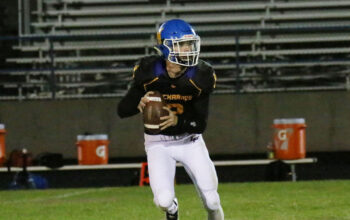By Justin Albright Posted October 16, 2013
Unless you have been living under a rock recently, you may have noticed how many college athletes are getting reprimanded for receiving benefits while they were attending their university. Schools and players nationwide are receiving cruel and unusual punishment from the NCAA for accepting any type of benefit.
Penn State received one of the harshest penalties in the history of the NCAA for something that isn’t even football related. What Jerry Sandusky did was absolutely terrible, but Penn State should not have to suffer the way it is right now. The school lost $60 million and has a four-year bowl pan, all for something that had nothing to do with the football program.
You can even go back and look at an individual case where athletes have gotten wronged by the NCAA. Dez Bryant, a receiver from the Oklahoma State Cowboys, was suspended for his whole sophomore season just for lying about having dinner with Deion Sanders.
Each day these athletes see their fame all over ESPN, they see their jerseys being sold on campus, and yet they are struggling to pay for rent, and struggling to feed themselves. Once these athletes receive any kind of help, they are immediately under investigation for violating some ridiculous NCAA rule.
The Miami Hurricanes were once a football powerhouse, but when the NCAA learned that athletes received improper benefits from a booster in the ’90s, their football program was decimated by penalties from the NCAA, and after getting penalized in the mid-’90s, they are now just recovering 20 years later.
SMU was also one of the most powerful football programs in the nation in the 1980s, yet they received the death penalty from the NCAA, just because athletes received money from boosters. The death penalty is when the NCAA cancels an entire season for a specific sport, and SMU had the 1987 and 1988 seasons canceled, and their program has never recovered.
The NCAA en wrongs athletes when it comes to their coaches, once a coach learns that his school is under investigation the coach can immediately leave the school, but if an athlete tries to transfer from a school that is facing penalties they have to wait a year to resume their playing career. Why is it okay for a coach to leave, but once an athlete tries to do the same they are penalized?
Pete Carroll is a prime example of this; Carroll was the coach of the USC Trojans in the early 2000s when the Trojans reeled off multiple National Championships in one of the most successful runs in college football. However, USC came under investigation due to Reggie Bush accepting a free car, a house, and money. Once Carroll heard of this he bolted for the NFL as fast as he could, while Bush had to return his Heisman Trophy and USC had a two-year bowl ban.
The NCAA has wronged so many athletes and universities so go ahead and ask yourself, does the NCAA really care about student-athletes?




